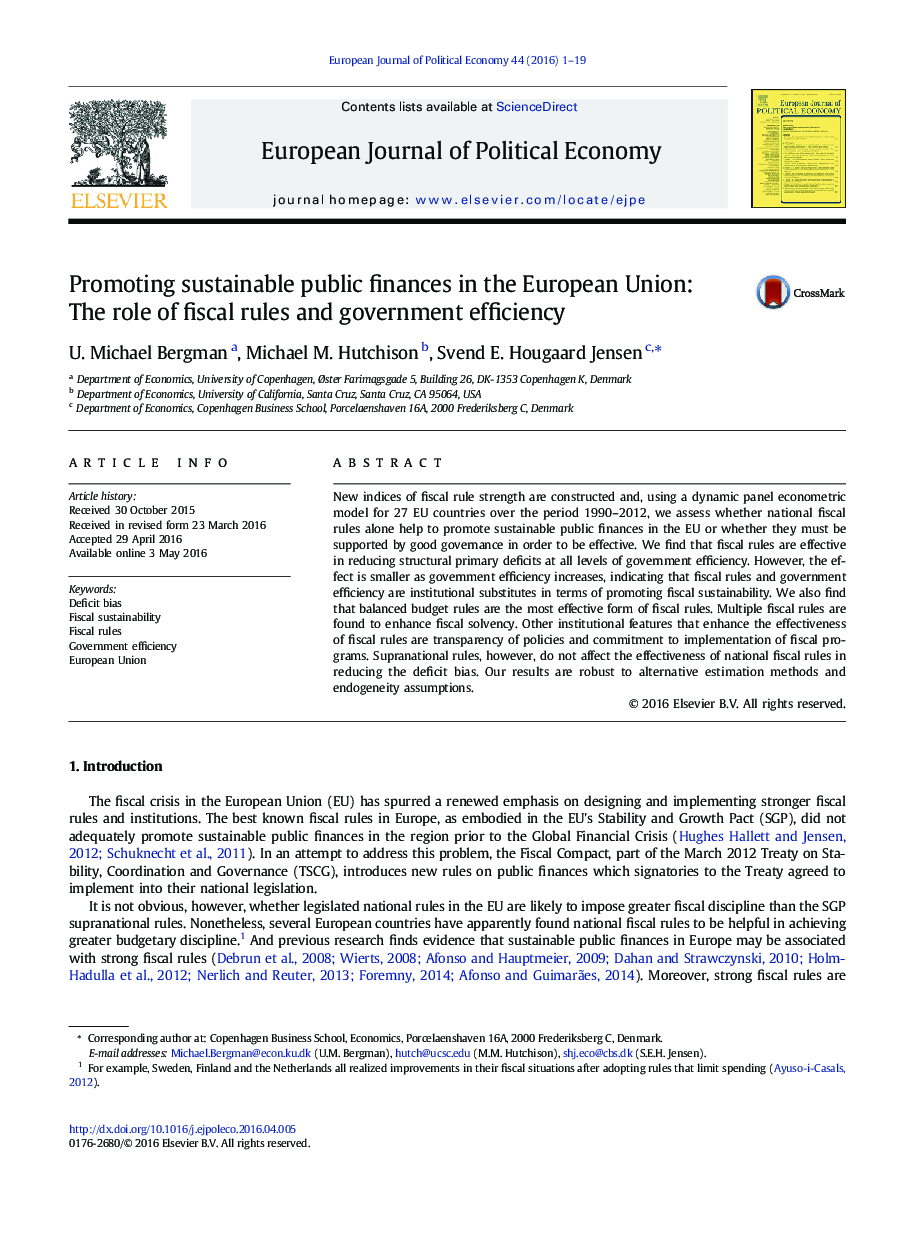| Article ID | Journal | Published Year | Pages | File Type |
|---|---|---|---|---|
| 5067866 | European Journal of Political Economy | 2016 | 19 Pages |
â¢New indices of fiscal rule strength for the EU are constructed.â¢Test whether fiscal rules and government efficiency are institutional substitutes.â¢Stronger fiscal rules are associated with more sustainable fiscal policies.â¢Balanced budget rules are most effective given certain level of government efficiency.â¢The Fiscal Compact found to be well designed in order to reduce the deficit bias.
New indices of fiscal rule strength are constructed and, using a dynamic panel econometric model for 27 EU countries over the period 1990-2012, we assess whether national fiscal rules alone help to promote sustainable public finances in the EU or whether they must be supported by good governance in order to be effective. We find that fiscal rules are effective in reducing structural primary deficits at all levels of government efficiency. However, the effect is smaller as government efficiency increases, indicating that fiscal rules and government efficiency are institutional substitutes in terms of promoting fiscal sustainability. We also find that balanced budget rules are the most effective form of fiscal rules. Multiple fiscal rules are found to enhance fiscal solvency. Other institutional features that enhance the effectiveness of fiscal rules are transparency of policies and commitment to implementation of fiscal programs. Supranational rules, however, do not affect the effectiveness of national fiscal rules in reducing the deficit bias. Our results are robust to alternative estimation methods and endogeneity assumptions.
